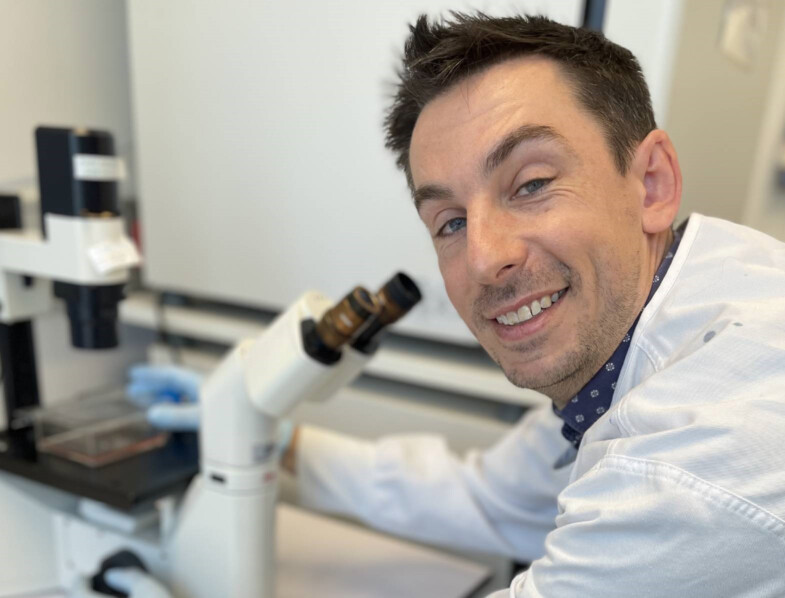Dr Ben Wylie is a recipient of Cancer Council WA’s Postdoctoral Fellowship, which he is using to develop kinder and less toxic treatments for cancer.
We recently caught up with Dr Wylie to hear about his journey to becoming a cancer researcher and what motivates him to continue looking for that next discovery.
“Early on in my life I became very interested in biology and how things worked in the natural world, it was my curiosity that really drove me towards a research career,” Dr Wylie says, who is now using that curiosity to discover new treatments for cancer patients.
Based at Telethon Kids Institute, Dr Wylie and his team have developed a bio-degradable gel which is loaded with immunotherapy drugs. When placed at the site of the tumour during cancer surgery, the immunotherapy gel has the potential to eliminate cancer cells that are undetectable, or surgically unreachable, as a result of their close proximity to nerves or vital organs.
“It’s really innovative and groundbreaking, as there aren’t many people in the world who are focused on immunotherapy in a surgical context.
“We came up with a whole new way of thinking about delivering therapy that was based around surgery – which could make it applicable for many solid cancers, like pancreatic cancer, colorectal cancer and also sarcoma. Sarcoma is one of the areas that we are most interested in, especially in children. Despite being quite rare in adults, Sarcoma is actually the third most common pediatric cancer and recurrence after surgery is a big problem.” says Dr Wylie.
Importantly, the immunotherapy gel may offer a kinder form of treatment for kids with Sarcoma, one which has less toxic side effects than current treatments.
After extensive testing in the lab, the first trial of the immunotherapy gel began with twelve pet dogs who had been diagnosed with sarcoma, a cancer that begins in the connective tissues of the body. After being diagnosed at a local veterinary clinic, the dogs’ owners gave consent for the gel to be administered during surgery to remove the tumour. “Preliminary data from the canine trial is very positive and suggests that the gel-based therapy is safe,” Dr Wylie reports.
Dr Wylie remembers the moment when the first canine patient was brought in for surgery, and his realisation that, for the first time in his career, his discoveries could make a difference to patients.
Dr Wylie has also been inspired to find new discoveries through being a bone marrow donor for his father, who was recently diagnosed with acute myeloid leukemia, with Dr Wylie being the only suitable match for a bone marrow transplant.
“I hadn’t had that personal connection to cancer before and having that happen really did affect the way I interacted with my work, and thought about the impact we could have”, says Dr Wylie.
While Dr Wylie’s funding through Cancer Council WA has supported him to continue developing and expanding use of the immunotherapy gel, it was a Cancer Council WA Early Career Investigator grant that he says has enabled him to get to where he is now.
“Cancer Council supported me very early on when I was just starting out on my research career”, Dr Wylie shares.
This grant provided the seed funding for him to explore building different combinations of drugs into the gel and using the results, he was able to successfully apply for more funding.
These early discoveries paved the way for the canine trial and pending positive results and more funding, Dr Wylie hopes to see the immunotherapy gel progress to a human clinical trial soon.
Dr Wylie is clear that none of this would have been possible without the support of the donors.
“Thank you so much, because it’s only through your support that we can do the work that we’re doing. Your donations are so important to support local research here in WA.”
For more information
- See our 2023 research award
- Read more about our research funding strategy and how we utilise your vital donations.
- Donate to support local cancer research today.
